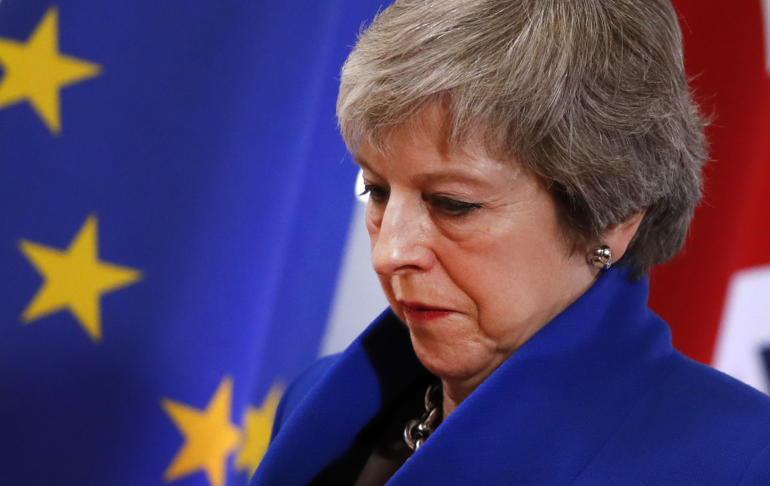British Prime Minister Theresa May is back in the UK, with parliament planning to vote on the withdrawal agreement in December.
Certain members of Theresa May’s coalition and the opposition party already vow a “no vote.” CGTN’s Richard Bestic reported on the reaction from London.
On the streets of the UK capital, much of the choreographed gathering in Brussels had washed over many. Far from triggering emotional outbursts of anger or joy, that the country has taken a giant leap for Brexit, the new was greeted with apparent passing interest. People in Britain were apparently underwhelmed by the deal, but perhaps they were skeptical the deal was actually settled.
A parliamentary vote scheduled for December 10th is widely expected to result in rejection. Even once-loyal government supporters say they plan to wreck the deal. “As I’ve said we’ll not be voting for this. And, as I understand there are many others across the Commons who will not be voting for it either,” said Arlene Foster, leader of the Democratic Unionist Party that’s part of British Prime Minister Theresa May’s ruling coalition.
The prime minister had written a personal letter to the people of Britain, asking for their support in the hope they’ll persuade their members of parliament to vote ‘yes’ to the Agreement.
She’s taking to the road for a public relations blitz to win support. Some senior cabinet ministers joined her in the push. “The PM is not a quitter. And if you ask me, this is someone who’s going to stay in post and see Brexit through. What she is passionate about is delivering a Brexit that honors the letter and the spirit of the referendum,” said Jeremy Hunt, UK Foreign Secretary.
Should parliament overturn the withdrawal agreement, there’s little consensus on what might happen next. As the clock ticked down to Brexit Day on March 29th – the day, on which the UK finally departs the European Union after more than four decades of membership – the view in Britain was that the issue remains undecided, unresolved and deeply uncertain.
David Collins on Brexit withdrawal deal’s chances in UK parliament
For more on the upcoming UK parliament vote on Brexit deal, CGTN’s John Terrett spoke with David Collins from the City University of London. He’s a Professor of International Economic Law.
 CGTN America
CGTN America
 British Prime Minister Theresa May walks past the EU flag at the conclusion of an EU summit in Brussels, Sunday, Nov. 25, 2018. (AP Photo/Alastair Grant)
British Prime Minister Theresa May walks past the EU flag at the conclusion of an EU summit in Brussels, Sunday, Nov. 25, 2018. (AP Photo/Alastair Grant)
